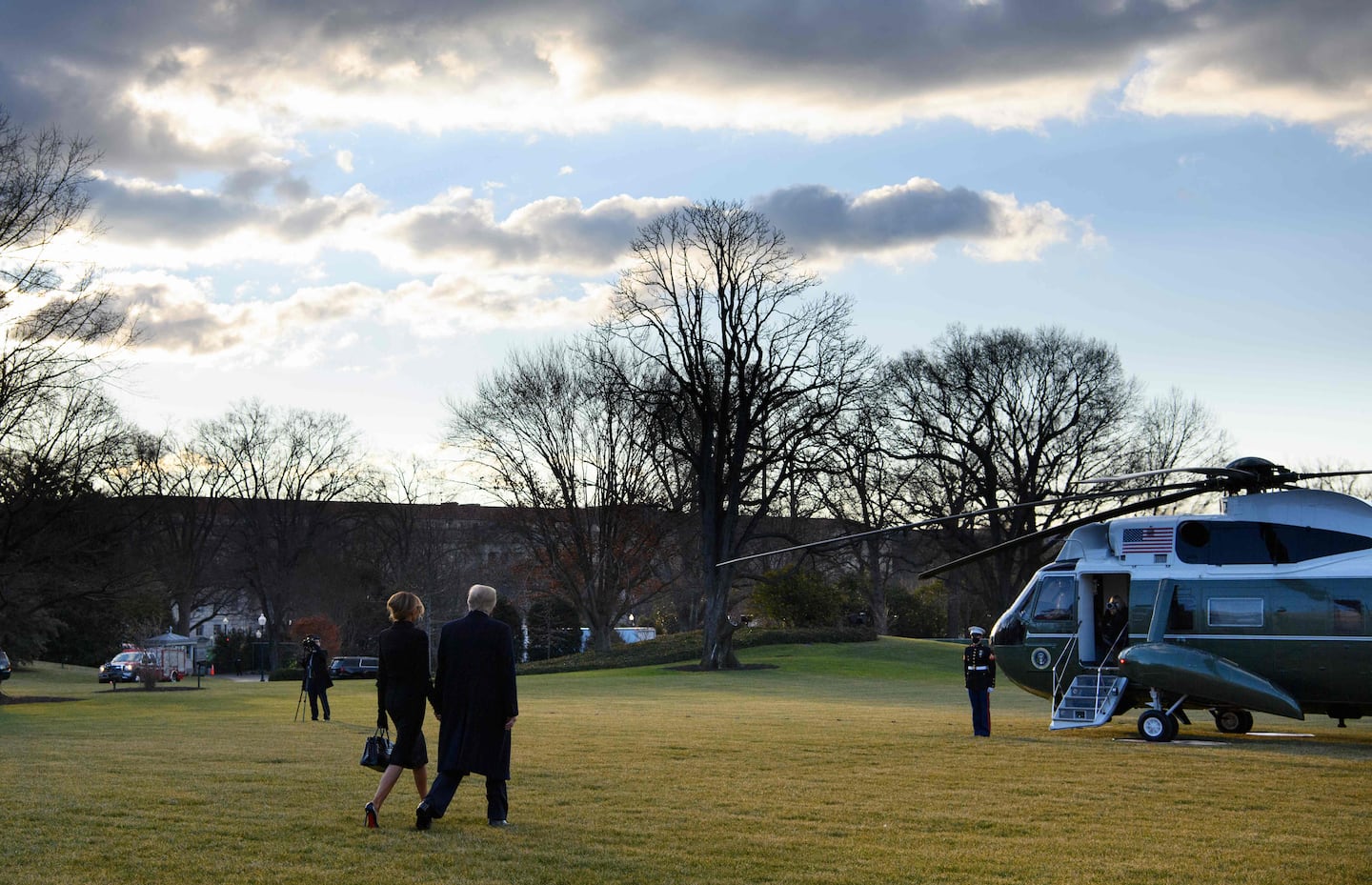With his last pardons, Trump makes clear his position on political corruption

Over the months that followed, Trump repeatedly sided with corrupt politicians over the authorities who uprooted them. He pardoned former New York City police commissioner Bernard Kerik, who had admitted to fraud and lying to White House officials. He pardoned Michael T. Flynn, his own former national security adviser, who had pleaded guilty to lying to investigators digging into Russian interference in the 2016 presidential campaign. He pardoned former congressmen Chris Collins (R-N.Y.) and Duncan D. Hunter (R-Calif.), both of whom had endorsed his 2016 candidacy and who had pleaded guilty to insider trading and misusing campaign money, respectively. He commuted the sentences of former Illinois governor Rod Blagojevich (D), who was convicted on corruption charges, and former congressman Steve Stockman (R-Tex.), who had been convicted of money laundering and misusing campaign contributions.
Even as his time in office came to a close, Trump wasn’t done. Early Wednesday morning, the day Trump will leave his office, the White House announced a number of new pardons. Among them was one for former congressman Rick Renzi (R-Ariz.), who was convicted on charges of corruption, as was former congressman Duke Cunningham (R-Calif.), who was convicted on various fraud and bribery-related charges. Trump also pardoned former Detroit mayor Kwame Kilpatrick (D), who was convicted of perjury and obstruction of justice.
That’s just the elected officials. Trump has also pardoned people involved in Republican politics, including fundraisers, political commentators and campaign staff members. He has pardoned or commuted the sentences of various people involved in his 2016 campaign who had been convicted of or pleaded guilty to a range of charges, including offering false statements to investigators.
All of this broadly undercuts Trump’s repeated insistence that he would “drain the swamp” in Washington. In the early morning hours of his last day in office, he undercut that idea further, rescinding an executive order barring officials from becoming lobbyists after leaving the administration.
But it shouldn’t be understood primarily as a shrug at the idea that he would clean up Washington. It should, instead, be understood as a clear demonstration of how he approaches the idea of holding power to account.
Since even before his inauguration four years ago, Trump derided the idea that there should be any investigations of possible connections between his 2016 campaign and Russia’s efforts to interfere in that election. It seems clear that this opposition originally stemmed from some insecurity about his having lost the popular vote to Hillary Clinton, undermining his insistence that he was the choice of the American people. But as the months passed and as the investigations continued — escalated by the appointment of a special counsel after Trump fired the director of the FBI — Trump and his allies in the conservative media built a complicated narrative suggesting that the inquiries were politically motivated and inherently corrupt.
The investigations themselves, conducted by the special counsel and congressional committees, detailed the extent of Russia’s efforts to interfere and documented a number of points of overlap between Trump’s team and agents of the Russian government. Although there was not sufficient evidence uncovered by the special counsel inquiry to bring conspiracy charges against anyone working for the campaign, the investigations did establish that Trump campaign chairman Paul Manafort had shared confidential campaign information with a man identified as a Russian agent. The investigations did dig into apparent contacts between Trump’s longtime aide Roger Stone and WikiLeaks, which distributed material stolen by Russian actors, without resolving what connections might have existed.
Trump pardoned both men after their convictions on unrelated charges.
That Trump himself was never shown to have directly coordinated with the Russian effort could have been presented as an example of federal law enforcement doing its due diligence. Instead, Trump considered the investigations as inherently invalid and scrambled to gin up rationales to justify that claim. Trump was calling the Russia probe a “witch hunt” months before anyone learned about text messages sent between FBI officials which were retconned into proof that the probe was politically motivated. A separate investigation by the Justice Department inspector general determined that the Russia inquiry was, in fact, justified.
The objection was simply to the idea that he and his allies should face any scrutiny. He positioned law enforcement as an enemy and worked to undercut it. And then he worked to unwind what law enforcement had achieved in its investigations of various corrupt politicians.
It’s worth remembering that when Trump was first impeached by Congress, it was because he’d attempted to pressure another foreign leader, Ukrainian President Volodymyr Zelensky, to open an investigation of Joe Biden, Trump’s then-presumed 2020 opponent. Trump and his allies insisted that he’d applied that pressure on Zelensky solely because he was so concerned about political corruption in Ukraine. That he’d demonstrated no interest in combating corruption during his preceding three years in office was academic. But that defense — apparently sufficient for the Senate not to convict him — should also be considered in the context of how willing Trump has been to erase the criminal records of American officials convicted of corruption.
Again, part of Trump’s pardon spree was his lashing out at law enforcement officials for having done their jobs. But part of it, too, is that Trump apparently doesn’t see the crimes of his allies and of corrupt politicians as black marks, as something that those people should carry with them. All of those public servants who betrayed their constituents’ and the country’s trust simply deserve a pass, for whatever reason.
In that context, it is remarkable that, in the end, Trump decided against pardoning himself.






